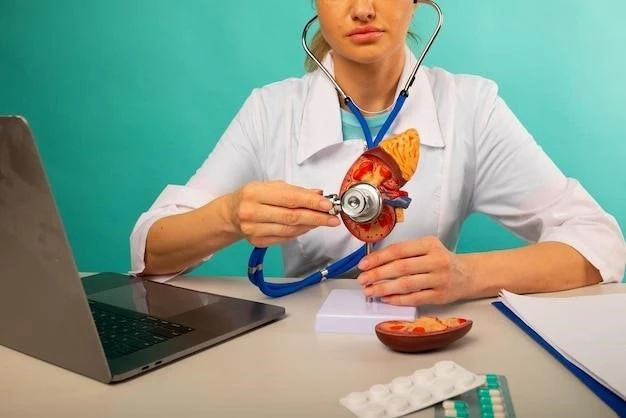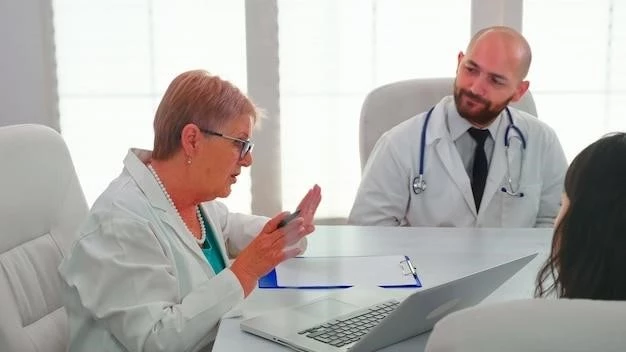Introduction to Proctitis
Proctitis is inflammation of the rectum’s lining, leading to symptoms like rectal pain, diarrhea, bleeding, and discharge. Proctitis can be acute or chronic, with various causes such as infections, IBD, radiation therapy, or autoimmune diseases.
Definition and Overview
Proctitis is inflammation of the rectum’s lining, termed the rectal mucosa. It can be acute or chronic and is characterized by symptoms like rectal pain, diarrhea, bleeding, and discharge. The causes of proctitis range from infections to radiation therapy, and a proper diagnosis is crucial for effective treatment.

Causes of Proctitis
Proctitis can be caused by various factors, including infections, inflammatory bowel disease, radiation therapy, and other triggers. Understanding the underlying cause is crucial for effective management and treatment of the condition.
Inflammatory Bowel Disease (IBD)
Proctitis is often linked to inflammatory bowel disease (IBD), a group of conditions causing chronic inflammation in the digestive tract. In IBD, the immune system attacks the gastrointestinal tract, leading to symptoms like rectal pain, bleeding, and diarrhea. Effective management strategies tailored to the underlying cause of IBD play a crucial role in treating proctitis.
Infections
Proctitis can be caused by various infections, including sexually transmitted diseases like N. gonorrhoeae, C. trachomatis, HSV, LGV, and T. pallidum. Effective diagnosis and treatment involve thorough examinations, microbiologic workup, and appropriate therapy tailored to the specific infectious agent.
Radiation Therapy
Proctitis can develop as a result of radiation therapy, particularly when the rectum is exposed to radiation during cancer treatments. The inflammation caused by radiation can lead to symptoms like rectal pain, bleeding, and discomfort. Effective management of radiation-induced proctitis involves specialized approaches to alleviate symptoms and improve patient quality of life.
Rectal pain is a common symptom of proctitis, often described as a persistent discomfort or soreness in the rectal area. The intensity of pain can vary, affecting daily activities and quality of life.
Rectal Pain
Rectal pain is a common symptom of proctitis, often described as a persistent discomfort or soreness in the rectal area. The intensity of pain can vary, affecting daily activities and quality of life.
Diarrhea
Diarrhea is a common symptom of proctitis and is characterized by loose or watery stools, frequently accompanied by an urgent need to have a bowel movement. The inflammation in the rectum can disrupt normal stool consistency and lead to frequent and sometimes uncontrollable bowel movements.
Bleeding and Discharge
Bleeding and discharge are common symptoms of proctitis, where inflammation of the rectum can lead to blood in the stool and abnormal discharge. Proper evaluation and diagnosis are essential to determine the underlying cause and provide appropriate treatment for proctitis.

Diagnosis of Proctitis
Diagnosing proctitis involves evaluating symptoms, performing endoscopic procedures like colonoscopy or flexible sigmoidoscopy, and conducting biopsy and pathological examinations to identify the underlying cause and extent of inflammation. Effective diagnosis is essential for developing a targeted treatment plan.
Endoscopy Procedures
Endoscopy procedures like colonoscopy and flexible sigmoidoscopy are commonly used to diagnose proctitis. These procedures allow doctors to visually examine the rectal lining, identify inflammation, and potentially take biopsies for further analysis. A thorough endoscopic evaluation is crucial for accurate diagnosis and treatment planning.
Biopsy and Pathological Examination
Doctors may perform a biopsy during endoscopy procedures to diagnose proctitis. The biopsied tissue is then examined under a microscope by a pathologist to identify specific tissue changes, inflammation patterns, and potential causes of the condition. This in-depth examination helps determine an accurate diagnosis and appropriate treatment plan for proctitis.
Treating proctitis often involves medications such as anti-inflammatory drugs, antibiotics, or suppositories/enemas to reduce inflammation and manage symptoms. Choosing the appropriate medication depends on the underlying cause and severity of the condition.
Medications
Medications are a common treatment approach for proctitis and may include anti-inflammatory drugs, antibiotics, or rectal suppositories/enemas. The choice of medication depends on the cause and severity of proctitis to alleviate inflammation and manage symptoms effectively.
Natural Remedies
In addition to conventional medications, natural remedies like dietary modifications, probiotics, and herbal supplements may help alleviate symptoms of proctitis. While not a replacement for medical treatment, incorporating natural approaches can complement traditional therapies and contribute to overall symptom management.
Surgery
In cases where medications and other treatments for proctitis are ineffective or if there are complications like severe tissue damage, surgery may be necessary. Surgical options can range from procedures to remove damaged tissue to more extensive interventions to address the underlying cause of proctitis.
Ulcerative proctitis is a form of proctitis that involves inflammation and ulceration of the rectal lining. This condition can lead to uncomfortable symptoms such as diarrhea, rectal pain, bleeding, and fecal incontinence.
Ulcerative Proctitis
Ulcerative proctitis involves inflammation and ulceration of the rectal lining, resulting in symptoms such as diarrhea, rectal pain, bleeding, and fecal incontinence. This condition affects the lower part of the large intestine and can cause significant discomfort and disruption of bowel functions.
Acute vs. Chronic Proctitis
Proctitis can be either acute or chronic, depending on the duration and severity of inflammation in the rectal lining. Acute proctitis typically presents with sudden onset symptoms, while chronic proctitis may persist over a longer period, requiring ongoing management and monitoring to control inflammation and alleviate symptoms.
Reducing the risk of infections is crucial in proctitis prevention. Proper hygiene practices, safe sexual practices, and timely treatment of any underlying conditions can help minimize the risk of infection-induced proctitis and its complications.
Lowering Risk for Infections
Reducing the risk of infections is crucial in proctitis prevention. Proper hygiene practices, safe sexual practices, and timely treatment of any underlying conditions can help minimize the risk of infection-induced proctitis and its complications.
Managing Symptoms to Prevent Progression
Efficiently managing symptoms of proctitis is essential to prevent its progression. Timely treatment interventions, symptom monitoring, and lifestyle adjustments can help control inflammation, reduce discomfort, and minimize the risk of complications associated with proctitis.
People with HIV may experience rectal pain and proctitis symptoms. Specialized care and treatment may be necessary to address proctitis in HIV-positive individuals and manage potential complications effectively.
Proctitis in HIV-Positive Individuals
Individuals with HIV may experience symptoms of proctitis, necessitating specialized care and tailored treatment approaches to manage the condition effectively and address any associated complications.
Proctitis Post-Ostomy Surgery
After ostomy surgery, some individuals may develop proctitis, inflammation of the rectal lining. Specialized care may be required to address proctitis post-ostomy surgery and manage associated symptoms effectively.
Ongoing research and development focus on enhancing treatment options for proctitis. Therapeutic advancements aim to improve targeted therapies, minimize side effects, and enhance patient outcomes. Stay informed about emerging treatments and research trends in proctitis management.
Therapeutic Advancements and Research
Ongoing research and development in the field of proctitis aim to improve treatment options, minimize side effects, and enhance patient outcomes. Stay informed about emerging therapies and innovations to manage proctitis effectively.
Accurate diagnosis of proctitis involves analyzing symptoms such as rectal pain, bleeding, diarrhea, and discharge to differentiate it from other conditions with similar presentations. Precise symptom evaluation is essential for developing an effective treatment plan.
Analyzing Symptoms for Accurate Diagnosis
Accurate diagnosis of proctitis involves analyzing symptoms such as rectal pain, bleeding, diarrhea, and discharge to differentiate it from other conditions with similar presentations. Precise symptom evaluation is essential for developing an effective treatment plan.
Avoiding spicy, acidic, or fatty foods during bouts of diarrhea can help reduce proctitis pain. Incorporating a soft, bland diet may also alleviate discomfort and aid in managing symptoms effectively.
Impact of Diet on Proctitis Symptoms
Diet plays a crucial role in managing proctitis symptoms. Avoiding spicy, acidic, or fatty foods during episodes of diarrhea can help alleviate pain and discomfort. Opting for a soft, bland diet may also contribute to symptom relief and overall management of proctitis.
Long-term complications of proctitis may include chronic rectal pain, ongoing bleeding, and increased risk of infections. Effective management and regular monitoring are essential to address these potential long-term effects and maintain quality of life.
Addressing Potential Long-Term Effects
Long-term complications of proctitis may include chronic rectal pain, ongoing bleeding, and increased risk of infections. Effective management and regular monitoring are essential to address these potential long-term effects and maintain quality of life.
Managing rectal inflammation in proctitis involves implementing control measures, such as dietary modifications and anti-inflammatory treatments, to alleviate symptoms and reduce the inflammatory response in the rectum. Working closely with healthcare providers is crucial in effectively managing rectal inflammation associated with proctitis.
Control Measures and Anti-Inflammatory Treatments
Effective management of rectal inflammation in proctitis involves implementing control measures and utilizing anti-inflammatory treatments to alleviate symptoms and reduce inflammatory responses in the rectum. Collaborating with healthcare providers plays a vital role in managing rectal inflammation associated with proctitis.
Long-term implications of proctitis may include chronic rectal pain, ongoing bleeding, and an increased risk of infections. Effective management strategies are crucial for addressing these potential long-term effects and maintaining a good quality of life for proctitis patients.
Understanding Long-Term Implications
Long-term implications of proctitis may include chronic rectal pain, ongoing bleeding, and an increased risk of infections. Effective management strategies are crucial for addressing these potential long-term effects and maintaining a good quality of life for proctitis patients.
Understanding the causes, symptoms, diagnosis, and treatment options for proctitis is essential for effective management. Emerging trends in research and therapeutic advancements offer hope for improved outcomes and quality of life for proctitis patients.
Summary of Key Points and Emerging Trends
Understanding the causes, symptoms, diagnosis, and treatment options for proctitis is essential for effective management. Emerging trends in research and therapeutic advancements offer hope for improved outcomes and quality of life for proctitis patients.
